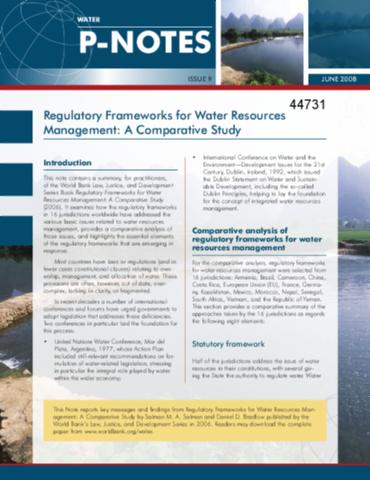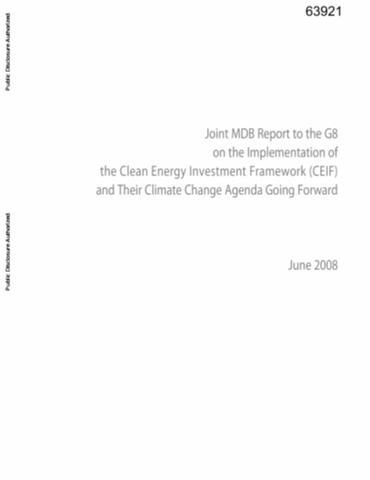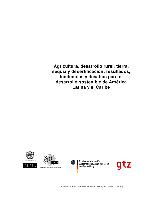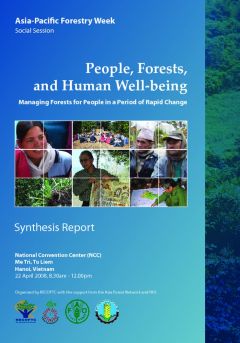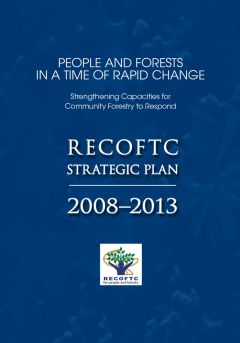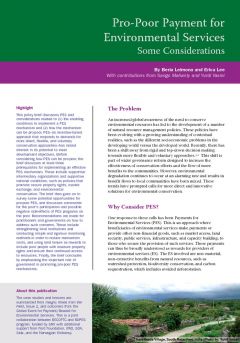Regulatory Frameworks for Water Resources Management : A Comparative Study
This note contains a summary, for practitioners, of the World Bank Law, Justice, and Development Series Book Regulatory Frameworks for Water Resources Management: a comparative study (2006). It examines how the regulatory frameworks in 16 jurisdictions worldwide have addressed the various basic issues related to water resources management, provides a comparative analysis of those issues, and highlights the essential elements of the regulatory frameworks that are emerging in response.

